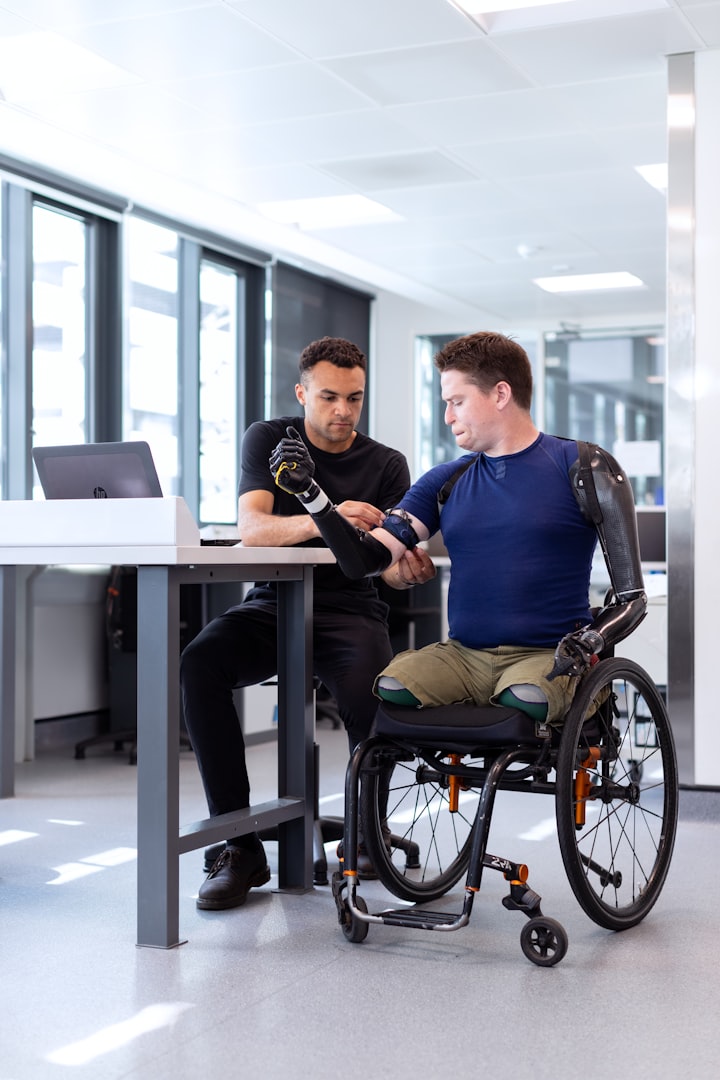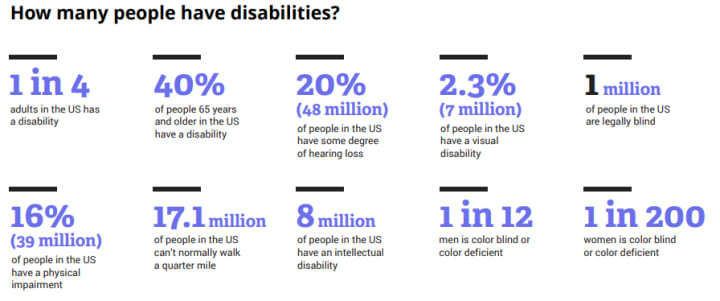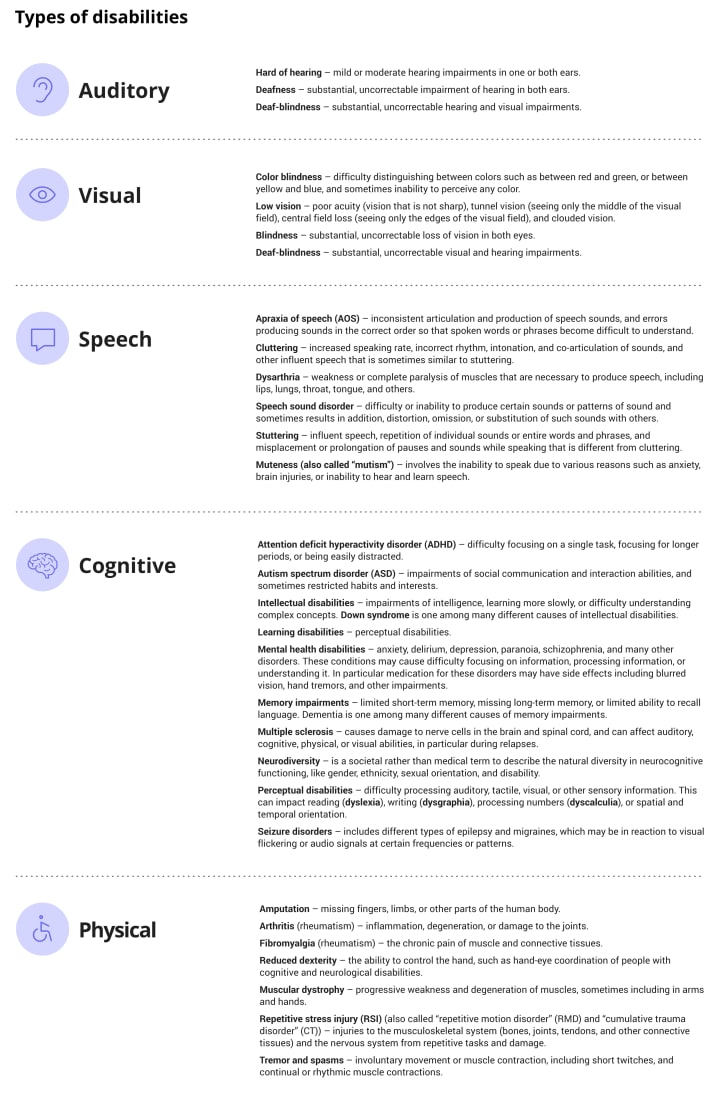Why Design for Accessibility Matters
Accessibility design for everyone

Why Design for Accessibility Matters
Accessibility in user experience (UX) design is the practice of making products usable by a diverse population, including those with disabilities. According to a survey by the Centers for Disease Control and Prevention, around 61 million adults in the United States, or 1 in 4 people, have some kind of disability. This number is expected to continue rising as the population ages. Beyond the US, the World Health Organization estimates about 15% of the global population or 1 billion people live with some form of disability. This means there is a very large market worldwide that can benefit from accessible products and services.

Beyond business reasons, accessible design is also important ethically. Everyone deserves the right to access information, communicate, and participate in modern society. Limiting access to digital products and services due to disability is a form of unjust discrimination. Therefore, many anti-discrimination laws in various countries, such as the Americans with Disabilities Act in the US, require accessibility to avoid being discriminatory against people with disabilities. Violations of these laws can result in costly legal claims.
Accessibility differs from usability although the two are interrelated. Usability focuses on making products effective, efficient, and satisfying for all users. Accessibility specifically targets users with various types and degrees of functional limitations. Inclusion is even broader, addressing all kinds of barriers including cultural, geographic, economic, age, and more that can prevent access.
There are diverse types of disabilities to consider in accessible design, from sensory to cognitive impairments. Hearing and visual disabilities are the most common, followed by mobility limitations such as physical and balance restrictions. However, it’s also important to consider less visible disabilities like learning difficulties, autism spectrum disorders, and mental health conditions. Assistive technologies like screen readers, Braille devices, and reminder apps can greatly aid users with various disabilities.

By considering the needs of people with different disabilities when designing, UX designers can create far more inclusive digital products. For example, providing descriptive alternate text for images assists blind users while transcripts for audio content aid the deaf. Sufficient color and contrast between text and backgrounds is important for users with visual impairments. Keyboard controls and navigation facilitate users with motor limitations. With proper accessibility features, all users can enjoy an equally good experience.
Most importantly, well-executed accessible design doesn’t just benefit people with disabilities, but all users. For instance, elderly individuals with declining eyesight and limited motor skills also benefit from larger text and buttons. Features like audio content transcripts are also useful for foreign language users. Thus, enhancing accessibility aligns with general UX best practices and principles. Designing with empathy and considering diverse user needs will always yield better products.
In summary, designing for accessibility is critical to ensuring products can be used by as many people as possible. It is not just an ethical and legal obligation, but also improves the overall user experience. UX designers need to consider different disability types and accessibility features when designing. With proper accessible design, we can create a more inclusive world for everyone.






Comments (1)
Great work! Good job!